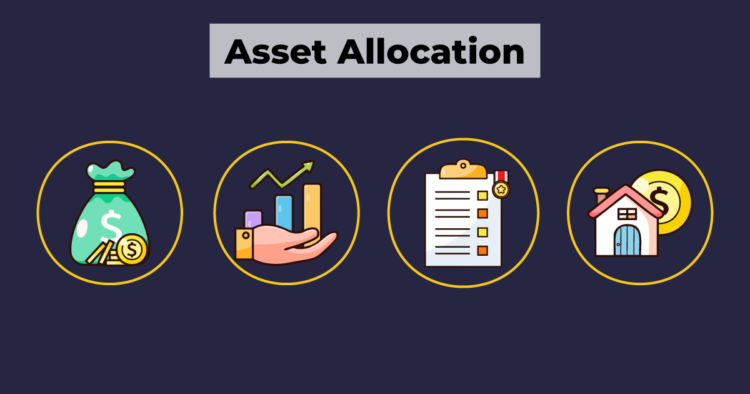
When it comes to securing financial success through your investment portfolio, there's a key ingredient that often goes underestimated or overlooked – Asset Allocation. This is a fundamental aspect that can significantly impact your overall returns, making it essential to understand and implement it effectively. In this article, we delve into the concept of Asset Allocation, what it entails, and how to determine the right mix that suits your financial objectives.
Asset Allocation is a strategic approach to managing your investments with the intention of striking a delicate balance between risk and reward. It involves dividing your investments across various asset classes, carefully tailoring your portfolio to match your financial goals, risk tolerance, and investment timeline. The underlying philosophy is simple yet powerful – don't put all your eggs in one basket or diversification.
Understanding Asset Classes
Before you can fully grasp the concept of Asset Allocation, it's crucial to familiarize yourself with the different asset classes. Here are some of the most common:
1. Cash and Cash Equivalents: This includes money market funds, certificates of deposit, and other low-risk, highly liquid assets. They are typically the safest but offer lower returns.
2. Equities (Stocks): Investing in company shares represents ownership in businesses. Equities typically offer higher returns but come with higher volatility.
3. Fixed Income (Bonds): Bonds are essentially loans to governments or corporations. They can offer more stability and consistent income in the form of interest payments.
4. Alternative Investments: These are less traditional investments, including private debt and equity, real estate and other entrepreneurial opportunities. They can offer diversification and potentially higher returns but are often not as readily accessible for an individual investor.
Determining the right asset allocation hinges on a few critical factors:
1. Your Goals: Your investment goals are the driving force behind your asset allocation strategy. What are you aiming to achieve? Whether it's retirement, a new home, or an education fund, your goals should dictate your allocation choices.
2. Your Time Horizon: The length of time you plan to keep your investments can significantly impact your asset allocation. A longer time horizon might allow you to take on more risk for potentially higher returns, while shorter horizons may require a more conservative approach.
3. Your Risk Tolerance: One of the most crucial factors in asset allocation is your comfort level with risk. Assess your risk tolerance honestly – are you willing to withstand market fluctuations, or do you prefer a more stable but potentially lower return strategy?
It's important to note that your asset allocation isn't set in stone. As your life circumstances and financial objectives change, your asset mix should adapt accordingly.
Seeking Expert Guidance
Navigating the world of asset allocation can be complex, and it's perfectly normal to have questions. If you're unsure about your asset allocation or would like tailored advice, don't hesitate to consult with one of our wealth advisers. They can help you craft a strategy that aligns with your unique goals, timeline, and risk tolerance, ultimately putting you on the path to financial success.
Disclaimer
All examples are for illustrative purposes only and are not intended to provide individual financial, investment, tax, legal or accounting advice. This material is for general information and is subject to change without notice. Every effort has been made to compile this material from a reliable source. However, we cannot guarantee that information will be accurate, complete and current at all times. Before acting on any of the above, please make sure to see a financial professional for advice based on your personal circumstances.
